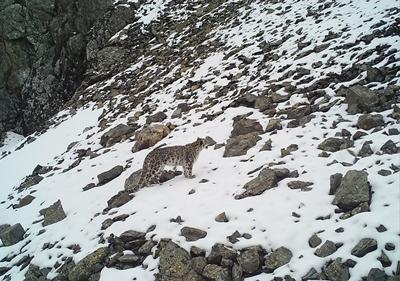Within this complex planet the touch of humanity, positive or negative, is rarely absent within conservation. The time for conserving untouched wilderness has passed for most ecosystems and is not a viable option for the sustainability and welfare of humans living within them. From global scale anthropogenic pressures to the livelihoods of indigenous communities, humans are now an integral part of all conservation decisions. Incorporating human welfare and livelihood into conservation science is an important cross-discipline move to promote both man and nature together. Furthermore, we now look at landscapes as socio-ecological systems in which ecological, social and political dimensions co-evolve, interact, influence and feedback into a dynamic system. Given this new consideration we now cannot manage landscapes based on the perception of ecologically defined boundaries alone as these ecological landscapes are now criss-crossed with socio-political interactions creating influential socio-political boundaries. The formation and nature of these barriers can drastically influence the face of socio-ecological landscapes and planed conservation action.
The mountain ecosystems of central Asia, although rugged and hard to access, experience human influence from mining activities and infrastructure, to local herding communities and tourism. The snow leopard is a symbol of these mountain ecosystems occurring across 12 countries, and each requiring large range sizes making viable populations insufficiently maintained by a single protected area. The wide political landscape and variety of social groups within or influencing the mountain ecosystem adds complexity to the conservation of this vulnerable species and requires the consideration of both human-wildlife and human-human interactions. Lack of range wide co-ordination through inconsistences in policy and conflicts of interests between social groups can drastically affect the success of the species occurring at alternate sides of these socio-political barriers. Furthermore, these barriers are far more complex than the assumed traditional sovereign territories and physical barriers demarked by legal processes.
This project will take a network analysis approach to identify the connections between social, political and ecological dimensions within the snow leopard landscape. Creating links between individuals, their actions, the environment and the rules which govern them. The project will focus on the Tian Shan mountain range at the cross-section of the international borders of China, Kazakhstan and Kyrgyzstan. This will enable the incorporation of a transboundary approach to the multidiscipline network analysis. By identifying connections, future conservation work can be targeted towards areas of greater need. This approach can be replicated at larger scales and at different global transboundary locations in order to effectively target conservation programmes.
However, the socio-ecological system is not static as demographic and social factors are set to change. Furthermore, future political climates are uncertain which becomes particularly influential when conservation is working at a transboundary scale. Therefore, we will define future likely scenarios through focus groups with influential social groups. This will be projected onto the multidiscipline network in order to determine future trajectories of this dynamic, co-evolving system.
Snow leopards are an illusive but vulnerable flagship species of the mountain ecosystems of Central Asia.
Type of project: MRES research project
Principal Investigator: Miss Alix Zelly
Supervisors:
Dr Philip Riordan
Dr Rebecca Morris
Funding provider: Self-funded
Funding dates: September 2019-September 2020
